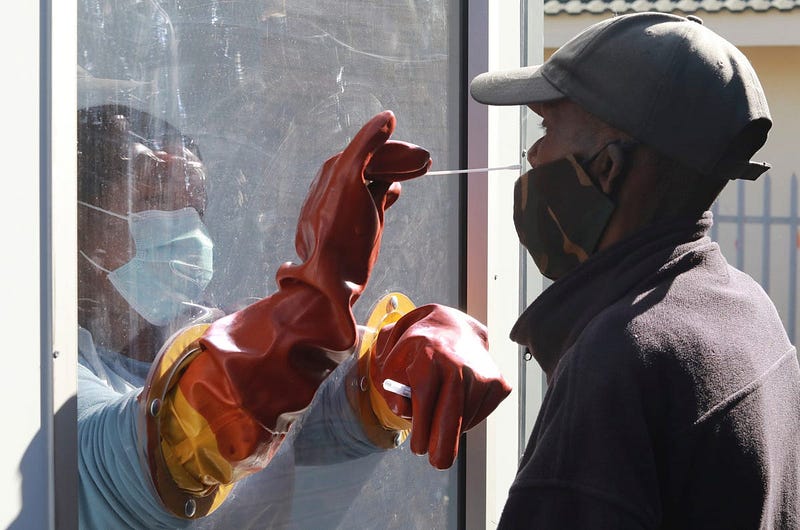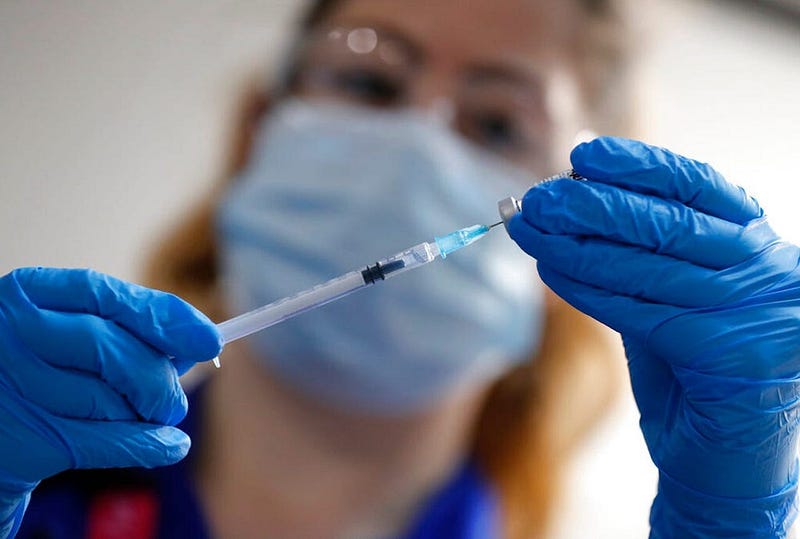A Breakthrough Vaccine: The Future of Coronvirus Protection
Written on
Chapter 2: Efficacy Against Variants
Despite the effectiveness of existing COVID-19 vaccines, research indicates that their protection against variants may not be as robust as against the original strain. For instance, studies show that current vaccines might provide less protection against the B.1.351 and P.1 variants, which were first identified in South Africa and Brazil, respectively.
Saunders shared that the pancoronavirus vaccine appears to elicit a stronger antibody response compared to current vaccines against these variants.
In a comparative study, the team found that an mRNA vaccine, similar to those developed by Pfizer and Moderna, produced a sixfold weaker antibody response against the B.1.351 variant and a tenfold weaker response against P.1 compared to the original strain. Conversely, the pancoronavirus vaccine exhibited only a threefold reduction in antibody response against these variants.
“What’s crucial is that the pancoronavirus vaccine starts with a strong antibody response, and only slightly decreases when encountering a variant, unlike the mRNA vaccines that begin with a lower response and face a larger decline,” Saunders remarked.
However, it remains uncertain how the pancoronavirus vaccine will compare to the booster shots being developed by Pfizer and Moderna.

The pancoronavirus vaccine utilizes a different technology than those of Pfizer and Moderna. While the latter instruct the body to produce the coronavirus’s spike protein to trigger an immune response, the pancoronavirus vaccine delivers a fragment of that key spike protein directly into the body.
“The idea was that by generating an immune response to this crucial component, we could limit the virus's ability to invade cells and replicate,” Saunders explained.
Chapter 3: Aiming for Long-Term Immunity
Scientists foresee that COVID-19 will likely persist globally, as not everyone will opt for vaccination, and some regions may take years to achieve sufficient vaccination coverage.
“The prevailing thought is that this virus has disseminated so widely that there will always be a low level of endemic infection,” Saunders stated.
As long as the virus remains in circulation, it can mutate, necessitating periodic booster shots.
An analogy can be drawn with the seasonal flu, which is a descendant of the 1918 Spanish flu pandemic. Influenza viruses mutate rapidly, requiring regular updates to flu vaccines to combat emerging strains. Health officials must predict which strains to include in vaccines almost a year in advance, leading to some mismatches between the shots and circulating strains.
In an optimal year, flu vaccines achieve around 60% effectiveness; however, in subpar years, this can drop to as low as 20%.
The goal of the pancoronavirus vaccine is to offer a solution that contrasts with the current flu vaccination strategy.
“It would not be a seasonal vaccine,” Saunders asserted. “Instead, it would provide long-lasting immunity, meaning once you are vaccinated, you wouldn’t need to return for additional doses as long as your immunity remains above a certain threshold.”
If you have a story related to the coronavirus pandemic that you would like to share, please reach out to us at [email protected]. For more insightful articles, visit Insider’s homepage.
